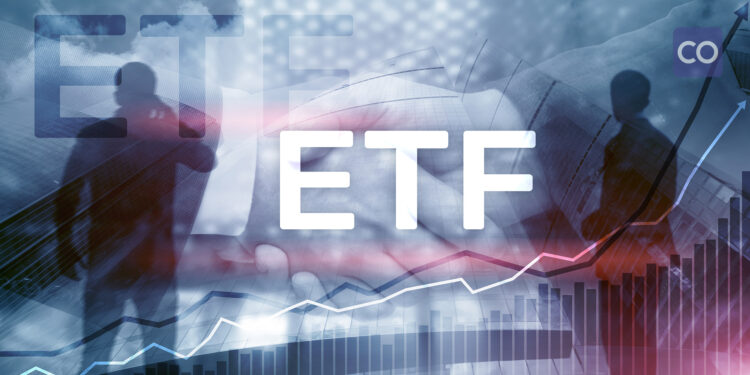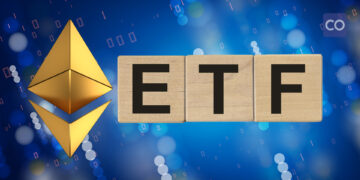Cryptocurrency exchange traded funds (ETFs) represent a type of investment fund that monitor the performance of a single or multiple cryptocurrencies. Much like conventional ETFs, these crypto ETFs are traded on exchanges, providing a convenient method to gain exposure to the cryptocurrency market without the necessity of directly holding cryptocurrencies.
How Do Stock ETFs Differ from Crypto ETFs?
Traditional stock ETFs and crypto ETFs are designed to monitor a specific asset’s performance. Stock ETFs follow the price fluctuations of a basket of company shares, whereas crypto ETFs observe the performance track of different cryptocurrencies.
Both ETFs are traded on stock exchanges, providing investors an easier method to acquire exposure to the underlying assets without directly possessing the assets.
While there are certain parallels, the two also have distinct differences. The foundational assets for crypto ETFs are digital currencies, which can exhibit greater volatility and complexity compared to conventional stocks, resulting in distinct risk factors. Furthermore, the regulatory framework for crypto ETFs is not as well-defined. Regulatory bodies in numerous countries are still in the process of formulating regulations for this new asset class.
Additionally, the settlement and custody of digital assets necessitate distinct technical specifications in contrast to conventional stocks. Operators of Crypto ETFs require robust storage options such as cold storage to safeguard against potential cyber threats.
Comparing Physically-Backed and Synthetic Crypto ETFs
Two main types of cryptocurrency ETFs exist.
The first type pertains to physically-backed cryptocurrency ETFs, often referred to as spot ETFs. The ETF is managed by an investment firm that acquires and retains the actual cryptocurrencies. When investors buy shares in these ETFs, they essentially possess the underlying cryptocurrencies indirectly, thereby obtaining exposure without the need to buy and manage individual coins.
The first spot Bitcoin ETF was listed in Europe on August 15, 2023, with several more Bitcoin ETFs awaiting approval in other regions.
Crypto ETFs that are physically-backed present several advantages and disadvantages:
PROS
- More straightforward to acquire exposure to cryptocurrencies
- Adhering to financial regulations
- The ETF operator ensures the safety, storage, and monitoring of the underlying cryptocurrency
CONS
- Overall returns may be diminished by management fees
- Potential errors in tracking by the fund management
- Limited options of physically-backed ETFs for crypto assets
The second type is referred to as synthetic crypto ETFs. These ETFs monitor cryptocurrency derivatives such as crypto futures and exchange-traded products (ETPs). For example, a Bitcoin Futures ETF is classified as a synthetic crypto ETF.
In synthetic exchange-traded funds (ETFs), the price of the shares correlates with the price of the derivative instrument, not the actual value of the cryptocurrency. However, as the settlement date nears, the price will gradually align with the spot price.
These ETFs bear extra risks owing to their dependence on derivatives and possible decreased transparency in their operations.
What are the benefits of Crypto ETFs?
Investors with an interest in the cryptocurrency market can benefit from several advantages provided by Crypto ETFs.
Primarily, they offer an accessible method to gain access to a variety of digital assets, eliminating the technical requirements linked with the direct purchase and managing of individual cryptocurrencies.
Additionally, ETFs are integrated into the traditional financial system, enabling investors to broaden their investment portfolios via well-known platforms such as retirement plans and personal brokerage accounts.
Finally, crypto ETFs eliminate the challenging educational barrier necessary for cryptocurrency investment by depending on the expertise of analysts who conduct the trading for you. There’s no requirement to understand blockchain’s intricate terminology and technical aspects. This enables investors to seize potential growth opportunities, avoiding the associated complexities.






